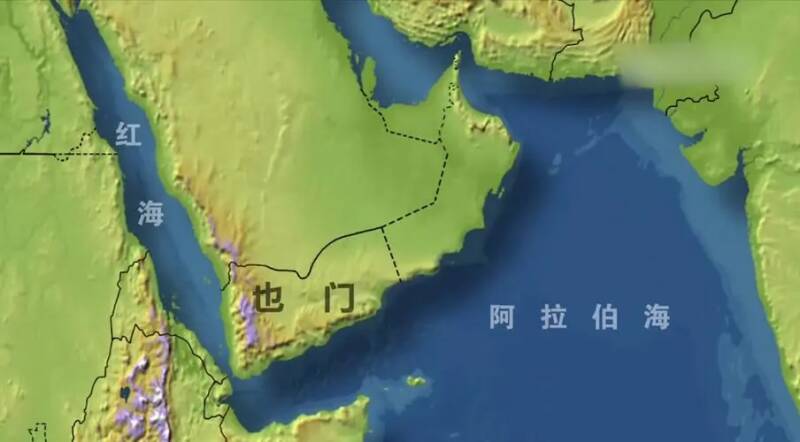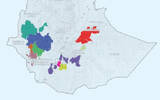The shipping problem of the Red Sea route continues, a "war risk surcharge" will be imposed, and the price of coffee continues to rise.
Recently, the Swiss Coffee Trading Company (Sucafina) released its logistics report in January 2024. Most shipping companies have suspended or diverted their ships from the Red Sea and the Suez Canal to the Cape of good Hope due to continued armed attacks near the Strait of Mande, which connects the Red Sea and the Gulf of Aden, the report said. However, some shipping companies have recently resumed passing through canals, including CMA CGM and Maersk. And several carriers have announced that they will charge a war risk surcharge because of force majeure.
Due to the diversion of goods caused by the Suez Canal problem, the transportation time has been increased by 2-3 weeks. This also leads to a reduction in container turnover, which may lead to a rise in freight rates and a surcharge. The reconfiguration of services and diversion of vessels have also led to poor scheduling reliability.

In East Africa, Burundi lacked trucks and fuel, delaying the transport of coffee. There is serious congestion in the port of Dar es Salaam in Tanzania, which has an impact on the arrival of ships and shipping schedules.
And under the influence of the situation in the Red Sea, many companies are rescheduling through the Cape of good Hope, and these ships are leaving the Red Sea and diverting on the coasts of South Africa and West Africa. This increased traffic has caused serious congestion at refueling ports around Africa. As a result, the decline in ship capacity at the ports of Mombasa in Kenya, Dar es Salaam in Tanzania and Djibouti has put tremendous pressure on port infrastructure and significantly increased transit time. Equipment shortages and space constraints are expected in the coming months.
Recently, however, the Vietnam Coffee and Cocoa Association said that the current price of coffee is between 70 million and 71 million dong / ton, down from 72 million to 73 million dong / ton before. It is reported that some coffee buyers avoid importing Robusta coffee beans from Vietnam. As Houthi forces attacked ships on the Suez Canal, the freight of imports from Vietnam increased, and many importers turned to buy Robusta coffee beans in Brazil, which is cheaper and shorter in terms of shipping costs.
But in Brazil, coffee prices are still rising because of fears that the recent dry weather in Brazil will damage coffee crops. According to the Somar Meteorologia report, the rainfall in the Brazilian state of Minas Gerais in the past week was 70.9mm, 85 per cent of the historical average. And lower production and lower coffee stocks also lead to higher prices.
Important Notice :
前街咖啡 FrontStreet Coffee has moved to new addredd:
FrontStreet Coffee Address: 315,Donghua East Road,GuangZhou
Tel:020 38364473
- Prev

Introduction of Ethiopian Coffee Yega Xuefei, Cochelle and Guodingding Cooperative
Ethiopia is the largest Arabica coffee producer in Africa and has a long history of coffee. And there are a wide variety of coffee, and it is estimated that there are now 10000 to 15000 coffee varieties in Ethiopia, most of which have not yet been formally identified. Ethiopia has many famous coffee products.
- Next

How do coffee beans get from seed to cup?
I don't know if you've ever been curious about where this cup of coffee came from, like the front street. Today, Qianjie will briefly share with you what coffee beans have experienced in this wonderful life. Coffee growing--what we know as a single coffee bean--is actually the seed in a coffee cherry, and you want to get
Related
- What grade does Jamaica Blue Mountain No. 1 coffee belong to and how to drink it better? What is the highest grade of Blue Mountain coffee for coffee aristocrats?
- What are the flavor characteristics of the world-famous coffee Blue Mountain No. 1 Golden Mantelin? What are the characteristics of deep-roasted bitter coffee?
- Can I make coffee a second time in an Italian hand-brewed mocha pot? Why can't coffee be brewed several times like tea leaves?
- Hand-brewed coffee flows with a knife and a tornado. How to brew it? What is the proportion of grinding water and water temperature divided into?
- What is the difference between Indonesian Sumatra Mantinin coffee and gold Mantinin? How to distinguish between real and fake golden Mantelin coffee?
- What does bypass mean in coffee? Why can hand-brewed coffee and water make it better?
- Unexpected! Ruixing Telunsu lattes use a smoothie machine to foam milk?!
- % Arabia's first store in Henan opens into the village?! Netizen: Thought it was P's
- Does an authentic standard mocha coffee recipe use chocolate sauce or powder? Mocha Latte/Dirty Coffee/Salty Mocha Coffee Recipe Share!
- What is the difference between Vietnam egg coffee and Norway egg coffee? Hand-brewed single product coffee filter paper filter cloth filter flat solution!

